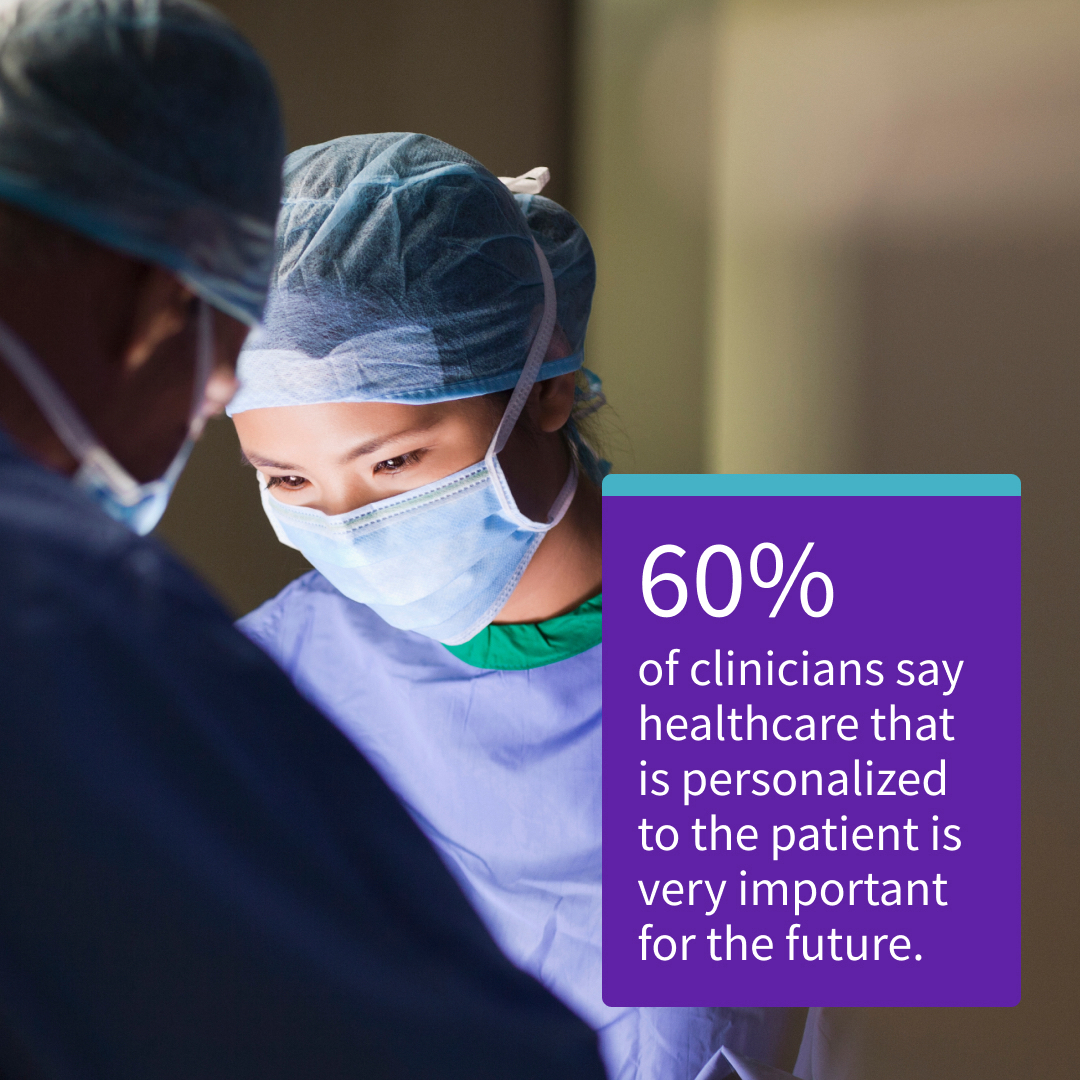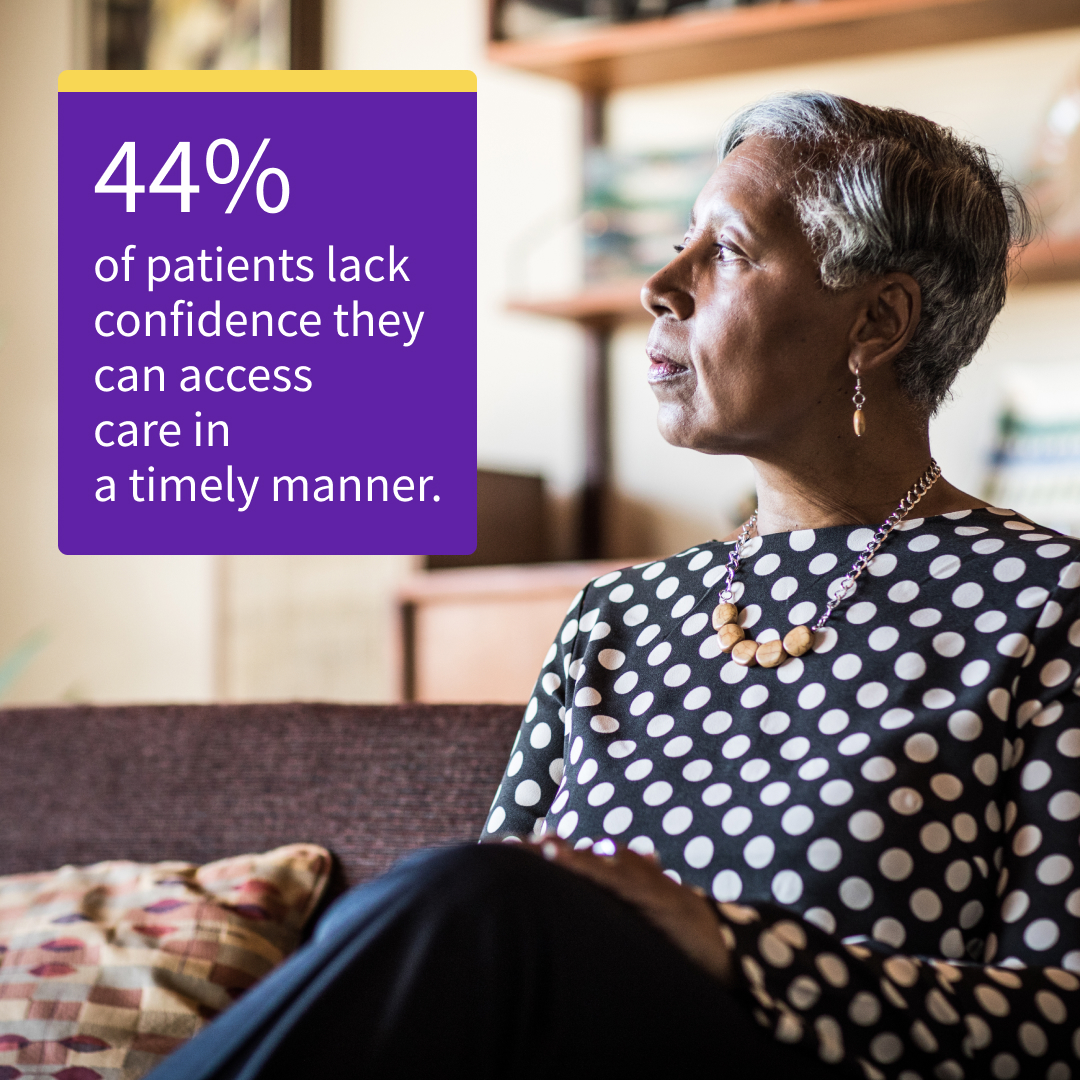In June, GE HealthCare released Reimagining Better Health, a study that examines the current trends — and barriers — in healthcare. Based on this survey of 7,500 patients and clinicians across eight countries, the goal for the future is clear: a more human and flexible healthcare system. To get to this brighter future, there’s work to be done.
The study identified six key trends evolving healthcare in the right direction: distributed care, predictive and precision medicine, care team well-being, patient and care team partnership, smart and connected technology, and harnessing big data.
But within each trend, several themes of challenge in healthcare emerged, regardless of geography or system type. By identifying these issues, we can all take steps to overcome them and move forward to reimagine the healthcare system.
Here are three themes identified in the study that indicate barriers in healthcare:
People Barriers
Clinicians want to receive continual training as medicine and technology advance, but often they do not have the time or opportunity to do so. They have identified three critical skills to be educated on in the future: technology skills, interpersonal and collaboration abilities, and fluency in virtual patient care. Clinicians might learn to seamlessly work together while fully utilizing the newest technology to offer the patient the best care.
Yet burnout is plaguing the healthcare field. According to the study, poor work-life balance is the number one reason clinicians cite for leaving the healthcare industry. This imbalance is compounded by limited resources and pressure from health crises facing many clinicians worldwide. And despite the hours they pour into their work, nearly half of clinicians struggle with support. Looking forward, many healthcare workers espouse change to workforce planning, because, according to one advanced practice registered nurse in the U.S., new clinicians won’t stand for this lifestyle: “The next generation doesn’t want to work the 60 hours I did when I was at the bedside of patients or when I was a director.”
Process Barriers
Patients value flexibility “in how, where, and when healthcare services are delivered” as a top priority. However, the majority are not yet comfortable with out-of-clinic care, from urgent care centers to telehealth. Patients are slow to trust healthcare workers outside of doctors or nurses to properly administer tests and understand results. Moving toward a more flexible future requires building comfort and confidence in out-of-clinic care.
Additionally, at-home testing and monitoring seems like an appealing, easy option, but there is doubt about self-administered tests. Though 61% of patients are willing to do their own basic testing and examination at home, only about half of clinicians trust this data. The key to increasing comfort could be telehealth supervision. Clinicians and patients alike are more comfortable having patients self-test when an experienced set of eyes is overseeing them. With time and just a bit of initial oversight, both patients and clinicians could become comfortable with new testing styles.
Technology Barriers
There is more data than ever, but there are also more data systems than ever, and interoperability issues put up major roadblocks to clinicians. This issue frustrates clinicians and undermines the trust patients have in them. A physician in Germany conjured an effective future for health data: “We need to build a more cooperative healthcare infrastructure and follow updated interoperability guidelines.” This kind of integration will help make each step within care systems exponentially smoother.
A Path Forward
The key to improvement is knowledge and understanding perspectives of those closest to care. This study uncovered both our strengths and our weaknesses, but ultimately it revealed opportunities to create a reimagined healthcare experience centered on serving people, from clinicians to healthcare workers to patients. And now that we have a better understanding of the barriers we face — and the skills we have to overcome them — we are enabled to rebuild toward a brighter, more human future for healthcare.
Explore the findings in the full Reimagining Better Health study.
About Reimagining Better Health
The Reimagining Better Health study draws on a quantitative survey of 2,000 clinicians and 5,500 patients and patient advocates, as well as qualitative interviews of 24 healthcare experts across eight countries in North and South America, Europe, and the Asia-Pacific region. This cross-sampling considered diversity of economic maturity, geography, and representation of a pure or hybrid form of the four basic healthcare models (Beveridge, Bismarck, National Health Insurance, and Out-of-Pocket).
The double-blind survey with random sampling was conducted between August and October 2022 by a third-party market research firm. All survey respondents were asked for their opinion based on their personal experience. Questions relating to technology solutions addressed their general perception and experience with technology within their facilities and included the entire spectrum of medical technology, without reference to any specific solutions or vendors. Any references in this report to technology are inclusive of the entire spectrum of medical technology, such as medical devices, software solutions, electronic patient records, and other digital workflow solutions.
Why We Conducted the Study
As we stepped into a new chapter as an independent company, GE HealthCare commissioned this study to help not only us, but the healthcare industry, add context and insights helpful to better defining the problems our customers and broader stakeholders face. It starts with listening and understanding before you can solve the problem.
By amplifying the voices of patients and clinicians, we shine a spotlight on their personal perspectives as a critical and frequently overlooked part of this conversation. Their insights are essential to the industry collectively reimagining healthcare. Their partnership and positive experience are key to the healthcare industry’s success.







